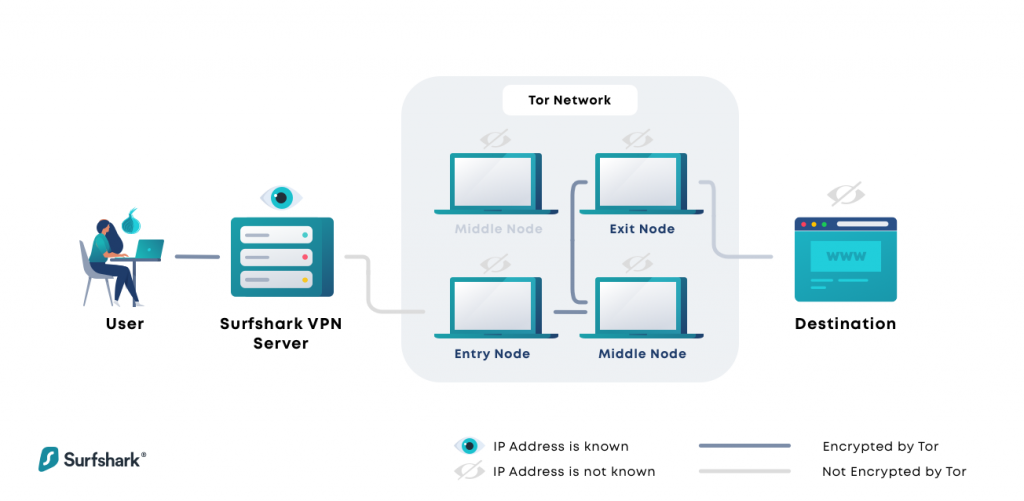Featured
Table of Contents
Understand The Differences Between Tor Browser And A Vpn
In practice, Tor Web browser is complimentary, while VPNs are usually paid, which makes your choice easy? Today, I desire to give you a complete comparison of Tor vs VPN and describe what they represent, their distinctions, utilize cases, and much more.
To begin off this Tor vs VPN comparison, I first require to describe what these tools represent. Besides, giving you a clear meaning of what they are and how they work will help you understand their distinctions, so pay attention. Beginning with Tor, this term is an abbreviation for "The Onion Router".
Nord, VPN It's essential to bear in mind that this is a tool for anonymity and not privacy I'll describe why shortly. When it concerns Tor nodes, they're held and maintained by volunteers, so we're talking about a decentralized service, instead of a central service which is the case with a VPN.
The silver lining is privacy due to the fact that nodes aren't operated by any specific companies, so you aren't risking keeping and logging your browsing activity by that business. On the other hand, the security of each node depends on the individual that's keeping it. As such, a node can be compromised by a hacker, let's state, who will be able to trace your connection.
Tor Over Vpn: Is It Useful If You're Not A Whistleblower?
The entry node is more critical due to the fact that, when connecting to Tor, your ISP can see that you did that through the entry node. We'll talk about that later on in this Tor vs VPN article.

Its "The Onion Router" name comes from the fact that it peels the layers of encryption likewise to the onion layers. And dark web websites also have the domain ". onion", which isn't a coincidence. Listed below, I discussed how Tor works and the process of securing and decrypting your demands.
When you link to the Tor network and you send a demand, you get triple encryption for each node. There's the entry node (typically called the guard node), the middle node (or middle server), and the exit node. Tor sends your request to the entry node, which gets rid of the first layer of encryption.
The entry node can't check out the encrypted content of the request, so it still can't trace your activities inside the Tor network. The traffic is then sent to the middle node, which removes another layer of file encryption and sends the encrypted traffic to the exit node. The exit node peels the last layer of file encryption, which is why it can see the encrypted request however it can't identify who is sending it due to the fact that it can't see your IP address.
Difference Between Tor And Vpn

If you're seeking to stay confidential online and you're believing about using Tor, I think it's excellent to understand more about its benefits and drawbacks, so check them out listed below. The triple layer of encryption ensures 100% privacy when utilizing Tor Internet browser It's complimentary and does not require any memberships It's a decentralized, open-source network with no monitoring and surveillance Tor Browser can going on the dark web The entry node can read your IP address and make it visible to your ISP when using Tor Decreases your web speed substantially due to innovative file encryption Nodes are operated by volunteers who might not do a terrific task at making sure they're secure You can't pick an IP address from a specific country, so you can't bypass geo-blocks Tor Internet browser does not work on all platforms Wondering what are the differences in between Tor and VPN? Well, for the start, a VPN is a tool for personal privacy, which implies it'll hide your identity and prevent anyone from seeing who you are.
VPN services provide countless servers in various nations, so they allow you to link to any of them easily and get an IP from the country you need. Then, each demand you send out is routed through a VPN tunnel where it is sent out to a VPN server which decrypts it and connects you to the site you want.
g. the site you're going to The very same procedure applies to traffic coming from the network from your gadget. It's crucial to explain that a while Tor (Tor Browser) is concentrated on the part of the connection in Tor Browser. This is why a VPN appropriates for torrenting, for instance, while Tor encrypts only the part of the connection sent out through the Tor Web browser.

With a single layer of encryption, the VPN really goes through less actions to protect your connection which has a huge benefit much quicker speeds and much better performance. They're extremely simple to utilize VPNs can be set up on every platform (Windows, i, OS, Linux, Android, mac, OS, routers,) You can select an IP address from a particular country, letting you bypass geo-restrictions There's a higher degree of accountability since you know who owns the VPN servers VPNs are extremely quick and superior companies provide 10 Gbps servers Advanced security functions like a kill switch, ad blocker, and Multi, Hop Total privacy, thanks to sophisticated encryption and the ability to hide your original IP It's a paid service which can be a problem for budget-constricted users Some VPN services are understood for saving logs (Hola VPN, Ninja, VPN, Betternet,) You should pick a reliable VPN that has a no-logs policy because you're handing over your privacy/anonymity to that business Now that you what Tor and VPN are, I feel the requirement to quickly summarize their differences simply to make sure you understand everything well.
Latest Posts
Best Vpn Services Of 2023 - Security.org
What Is A Vpn Tunnel And How Does It Work?
The Best Vpn Services 2023